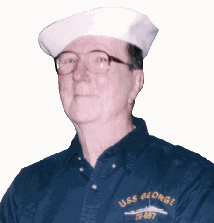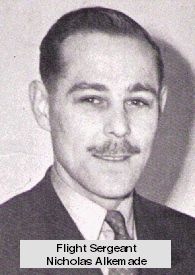|
|
|
|
|
|
|
|
|
|
|
|
|
|
|
|
|
|
|
|
|
|
|
|
|
|
|
|
|
|
|
|
|
|
|
The People News, a free newspaper serving Cleveland Tennessee (TN) and Bradley County Tennessee (Tn).
Of Bradley County Tn.
JULY 2008
The People News, a free newspaper serving Cleveland and Bradley County Tn.
|
|
|
|
|
|
|
HOME
|
|
BACK ISSUE ARCHIVE
|
|
EDITORIALS
|
|
LETTERS
|
|
CONTACT US
|
|
|
|
|
|
|
|
|
|
|
|
Arse-End Charlie - Miracle Man
|
|
|
|
|
|
|
|
Bizarre, Fascinating, and Wacky World War I & ll Secrets.
|
|
|
|
|
|
|
|
|
|
|
|
by Cecil Owen
I am flight sergeant Nicholas Stephen Alkemade of the British Royal Air Force and I am falling... falling... falling, and certainly picking up speed as I fall! I calculate that I have about ninety seconds left to live! Before I hit the ground and splatter! I have just somersaulted backwards out of my airplane at an altitude of 18,000 ft. Now I am faced with a slight complication, because I have no parachute! I have never been very superstitious, but this is my 13th combat mission over Germany. Next week I was going on leave, to see my sweetheart in Loughborough, England. I am just twenty one years old, and my life is about to end abruptly. Then... nothing, for I passed out completely.
I have the loneliest, most dangerous position in the Royal Air Force Bomber Command. I am the tail gunner on an Avro Lancaster four engine heavy bomber. This was the best bomber that England used during World War Two. A total of 3,425 were built and used. It could carry 10 tons of bombs at an altitude of 22,000 ft. However, it ran out of space, when the tail section was reached. The rear turret was small and cramped, just hardly enough room for the gunner, ammunition, and four machine guns. The gunner's parachute is located in the main fuselage, behind two sets of doors. In an emergency, the gunner must leave his turret to retrieve his parachute. Then it has to be hooked onto his harness, before he can bail out. I was called Tail-End Charlie or Arse-End Charlie by the rest of the airmen.
The name for my bomber was "S" for Sugar." It is almost midnight on March 24, 1944, and the place is 20,000 ft. above Berlin, Germany. We have just dropped our "payload", two tons of high explosives and three tons of incendiary bombs. As we turned and headed for home... it happened! Suddenly a series of shuddering explosions raked our plane from nose to tail! This came from 20mm cannon bullets, and two hit my turret ring mounting. My Plexiglas turret blister shattered and vanished, as one large piece sliced into my right leg. Luckily nothing else was damaged, so I could lower my four machine guns, and look out. About 50
|
|
|
|
|
|
|
|
|

|
|
|
|
|
|
|
|
|
|
|
|
|

|
|
yards away, I could see a Junkers 88 German Night Fighter, blazing away at my wounded plane. I aimed point-blank and squeezed the trigger on my four 303 Browning machine guns. Instantly four streams of fiery tracer bullets hit the Junkers 88, and his left engine caught fire and exploded. He pulled away, and then zoomed downward, he was doomed.
By now flaming fuel from our gas tanks was streaking past me. And oil from my turret's hydraulic system was also afire, so my hands and face had already been severely burned. I started to call the Captain on the intercom, to inform him the tail of the airplane was on fire. But he cut me off; "I cannot hold on very long, lads! So you will have to bail out right now!" Quickly I opened my turret door and the fuselage door beyond that. Smoke and flames leaped out at me, like a giant blow torch. Recoiling back into my turret, I knew I must have my parachute! So I opened the doors again, but it was too late! The case had burned off, and the tightly packed silk was popping out! Then it was unfolding and disappearing in puffs of fire! Therefore, I had three options to consider: 1. the plane could explode any minute. 2. If it did not explode, I would shortly be cremated in the flames. 3. I could jump out of the plane, and dive onto the ground below. So I tore off my oxygen mask, as it was beginning to melt. Next I turned my turret around, so the hole (where the Plexiglas blister had been shot off) faced the rear. Then I just somersaulted backwards into the cold night's atmosphere!
|
|
|
|
|
|
|
|
As my senses slowly returned, I realized that I was very very cold. I wondered how I could be this cold, if I am dead. I looked up as I was lying on my back in deep snow. There was a hole in the thickly growing fir trees, which must have broken my fall. Then the bushes and snow must have cushioned my landing. I have a terrible headache, and my body hurts all over, but I could move my legs, and I am in one piece, so I thank you God very much! It hurts too much to get up, so I have to just lay there. I began to blow my emergency whistle, which was attached to my collar. My watch is still running, so I saw that I have been out for about three hours. Soon a group of German men and boys came to rescue me. They put a tarp under me and dragged it across a frozen field to a cottage. An old lady there gave me a cup of some of the finest eggnog I have ever tasted. I was taken to the local hospital, and spent a long time in the operating room. My injuries were many: Plexiglas fragments were picked out of most of my body. Both legs were badly burned. My right knee was twisted. I had a deep slash in my thigh. My whole back was sprained. I had a concussion, and deep scalp wound. First, second, and third degree burns on my face and hands. And most of these injuries occurred before I jumped from my plane!
|
|
|
|
|
|
|

|
|
|
|
|
For three days I was questioned very intensely, especially about my parachute. No one believed that I had landed without one. The Nazi officer who had interrogated me would fly into a rage, every time I repeated my parachute story. And the Nazi doctors would put a finger to their head and smile. In other words, they thought I was crazy (touched in the head). Some thought I was a spy, for spies routinely hid their parachutes, but airmen falling out of the sky did not. Then after three weeks, my wounds were healing nicely. I was sent to Dulag Luft, which was a prisoner of war concentration camp for down allied airmen. It was located near Frankfurt, Germany. My incredible story had preceded me. So at once I was put into solitary confinement!
|
|
|
|
|
|
|
|
After a week passed, a young German Air Force Lieutenant, Hans Feidal took me to the office of Dulag Luft's Commandant. "I understand we need to congratulate you for your remarkable escape. You claim to have jumped, without a parachute, from a blazing British bomber 18,000 feet high? This is a very tall story, Sergeant, don't you agree?" "I can prove my story is true!" I said. "On the night of March 24, 1944, a British Lancaster bomber crashed about eight miles from where I was captured. The name on the side of the fuselage will be "S" for Sugar". And the burned remnants of my parachute pack will be found, just in front of the rear fuselage door. You will find that it has never been used!"
|
|
|
|
|
|
|
|
The Commandant gave orders to Lieutenant Feidal, who saluted and hurried out. Soon he returned, waving my parachute harness. Three other Nazi officers were with him, all were shouting excitedly in German! Then he threw my harness onto the Commandant's desk. He pointed to the snap-hooks that were still in their clips, and the lift webs still fastened down on their chest straps. "I also found this scorched handle of his parachute ripcord! This is the absolute proof that Sergeant Alkemade is telling the truth!" The camp Commandant leaned back in his chair, studying the evidence. Then he spoke in perfect English. "Gentlemen, this was indeed a miracle!" Then he came around his desk, and shook my hand. "Congratulations, my boy, for being alive. What a story you will have, to tell your grandchildren! Tomorrow, I will tell all your comrades how this happened."
The next morning a Nazi officer and two enlisted men escorted me into the compound where about 200 captured allied airmen were assembled. I had to stand up on a bench, so everyone could see me. Then the Nazi officer repeated my whole story to the astonished airmen. Soon a very large demonstration followed his speech. I was mobbed by French, British, American, and even the Germans... nationalities were forgotten! Everyone was shaking my hand, asking questions, and presenting me with cigarettes and squares of chocolate! Then I was presented with a document, signed by the senior British officer, who had written down the speech. It is only a faded piece of paper, but it will always be the proudest thing I own!
Dulag Luft
It has been investigated and corroborated by the German authorities that the claim made by Sergeant Alkemade, 1431537 Royal Air Force, is true in all respects, namely, that he made a descent from 18,000 feet, without a parachute, and made a safe landing without serious injury, his parachute having been on fire in the aircraft he landed in deep snow among fir trees. Corroboration witnessed by flight Lieutenant H. J. Moore Senior British Officer. Flight Sergeant R. R. Lamb 1339582. Fight Sergeant T. A. Jones 411. Senior British N/C/O's date 25/4/44.
Sources:
People in Peril (And How They Survived) by Reader's Digest
The Bedside Reader by Reader's Digest
Mysteries of Mind, Space, and Time (The Unexplained) by H. S. Stuttman, Inc.
Military Hardware of World War Two by Eric Grove, Christopher Chant, David Lyon, and Hugh Lyon
.
|
|
|
|
|
|
|
HOME
|
|
BACK ISSUE ARCHIVE
|
|
EDITORIALS
|
|
LETTERS
|
|
CONTACT US
|
|
|
|
|
|
|
|
|
|
|

|
|





